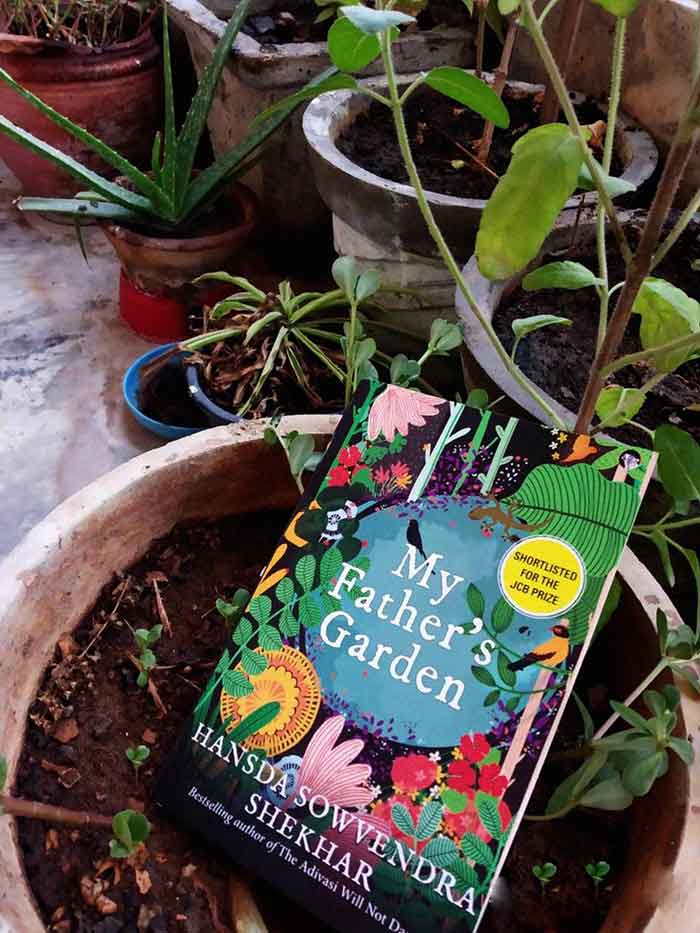
“My father was working in his garden, like he always did, though he appeared calmer. But every time I saw him, I would feel a quiet panic. I lacked the vocabulary, the courage and the cruelty I needed to tell him that I was not the son he expected me to be. And if I did, would he understand?”
The exemplary genius of creating a moving narrative was very well prevalent in Hansda Sowvendra Shekhar’s book The Adivasi will not Dance. The narrative was so moving in these selected short stories that one could not help but find them emerged in the intricacies of the world of marginalized. This compelled me to explore more of his works.
The domain of Indian writing in English is still dealing with the elements of post-coloniality and the tribal identity remains starkly impacted by the dual nature of coloniality. I claim it to be dual nature as there are two kind of colonialism that our tribal communities have faced- one with the English colonizers and the other with capitalist indigenous colonizers. While English colonizers claim them as barbaric, Criminal tribes act also imposed atrocious laws as to ‘civilize’ the tribes. On the other hand, post-independence, the negligence of government and the capitalist greed for the false sense of ‘development’ displaced varied section of tribes and henceforth misplaced their idea of tribal identity.
The book My father’s garden is a strong political commentary on intersectional hierarchy. This elemental because it tackles not only the subject of Santhal ( a tribe native of Jharkhand) identity but the element of homosexuality too. This is also considering the ways and acts through which LGBTQ+ community is marginalized. The unnamed narrator is very conscious about his identity as Santhal throughout the narrative but even more so conscious about his sexual identity, which does not adhere to heterosexual space in his home and other social spaces. This duality portrays the elemental aspect of alienation. Thus, in this manner the subjugation is doubled.
The rituals of tribes that remain integral to their space of ‘believing’ and the aspect of nature-worshipping is starkly different from the Brahmanical hegemonic idea of performativity of rituals and this is very well highlighted in this book. The account of methods of dealing with other tribes throughout the generation is also very intriguing. It is very easy to draw parallels of certain sections in this book to Chinua Achebe’s Things fall apart. I opine that this is because the aspect of colonialism has made certain practices of indigenous tribes alien to us. The act of writing, thus, becomes political as it brings the practices and rituals of Santhals and their performativity thereof to our notice.
Any work pertaining to the aspect of Indian writing in English is highly scrutinized with the perspective of authorship and question of representation. Is an account of tribes legitimate if it is written by a person who does not belong to any tribe? How much validity does this account hold? This book is important because it is an attempt by someone from the community itself to bring the literature of the tribes to the forefront, to the mainstream. The question of fictional space and its negotiation with history still remains very debatable but it is necessary for a space to be created in the canon for the voices of marginalized. This book is recommended to everyone in order to understand the stand of tribal literature in the canon of Indian writing in English. In order to understand intersectional identity, webs of hegemony, and how certain macro events affect micro levels of our lives.
Shriyanshi Shukla has completed her Post Graduation in English from The English and Foreign Languages University, Hyderabad. Being an avid reader, her areas of interest include Post-modernism, literature from margins, post-colonial literature among many other forms of art. ([email protected])
SIGN UP FOR COUNTERCURRENTS DAILY NEWSLETTER














































